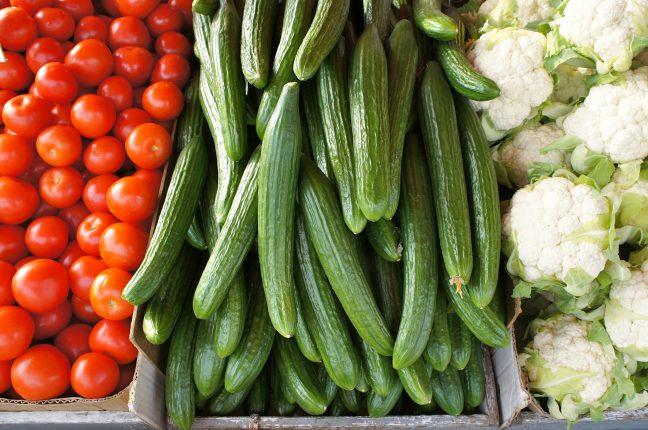University of Wisconsin alumni-founded startup Square Harvest, winner of the 2016 Wisconsin Innovation Award, uses computer technology to bring locally farmed goods right to Madisonian’s doorsteps.
Similar to farmers markets and community-supported agriculture, Square Harvest’s main focus is making sure everyone has access to local, organic foods — but with more variety.
UW alumni and married couple, Madhavi Krishnan and Karu Sankaralingam, created this startup to allow consumers to order produce online from small, local farmers with the promise that it will be delivered to homes within 48 hours with no additional charge.
Sankaralingam, an associate professor of computer science at UW, said the idea behind Square Harvest originated two years ago when he and his wife found it more difficult to make it to the farmer’s market early Saturday morning with their newborn son.
“When my wife and I were growing up in India, it was more common for us to just walk down the street and buy whatever vegetable you needed.” Sankaralingam said. “More often than not, that vendor had produce from farmers we personally knew.”
Sankaralingam said the couple was looking to reestablish that connection in a different way for a different demographic. Sankaralingam emphasized they created Square Harvest not to compete with farmers markets or other community agriculture programs.
New Sunday farmers’ market offers variety, added vendor competition
Krishnan, who worked at the UW Department of Computer Sciences and medical software company Epic, said the company was created for consumers who are looking for a certain number or specific type of produce that may not have been produced or sold at the local farmers market.
“We created an online website where people can shop for local food while also fostering a connection between the consumer and the producer,” Krishnan said. “Consumers today want to know where their food is coming from and how it is grown.”
To make sure their is a sustainable variety of produce, Square Harvest works with around 95 local farmers to provide prepared sausage, eggs, dairy, bread, milk, and jams, Sankaralingam said.
Krishnan said the main benefit of Square Harvest for consumers is convenience. Producers also set the prices of goods, so the majority of goods are the same price consumers would get at the farmer’s market, Krishnan said.
As of right now, delivery is only available to residents of Madison, Krishnan said. The company is in the midst of expanding their business with the hopes that the Square Harvest model will be replicated in other Midwestern cities, Krishnan said.
“We are working on Square Harvest 2.0, where you order and get your goods the next day,” Krishnan said. “We also want to be delivering three days a week instead of just having two delivery days on Tuesday and Saturday.”
The hidden politics of the Dane County Farmers’ Market discourage vendors
Krishnan said the company requires a lot of technology to find the most efficient way to deliver goods. To do so, Krishnan used software to solve the “traveling salesman problem,” which finds the shortest route between any assemblage of addresses.
“The technology we use finds the best route and then it tells us which way the driver needs to go,” Krishnan said. “And it goes beyond that by providing automatic notifications to customers that their food is delivered if they aren’t home.”
Krishnan said a typical customer drives about seven miles there and back to a grocery store, and they are shopping at multiple stores.
Every week delivery drivers travel about 1,200 miles to deliver goods to customers, Krishnan said. By doing this, customers are saving money that otherwise would have been spent traveling to grocery stores.
For consumers who are worried about maintaining local produce during the winter, Square Harvest continues to operate thanks to the creativity of Wisconsin farmers, Sankaralingam said. Though there may not be as big of a bouquet of produce during the winter, Square Harvest wants to make sure they are both seasonal and local.
“The vision behind Square Harvest is to make all the local, organic food really convenient and accessible for customers and that it becomes the default shopping option for them,” Sankaralingam said. “At the same time, we want to support the local economy and farmers.”








